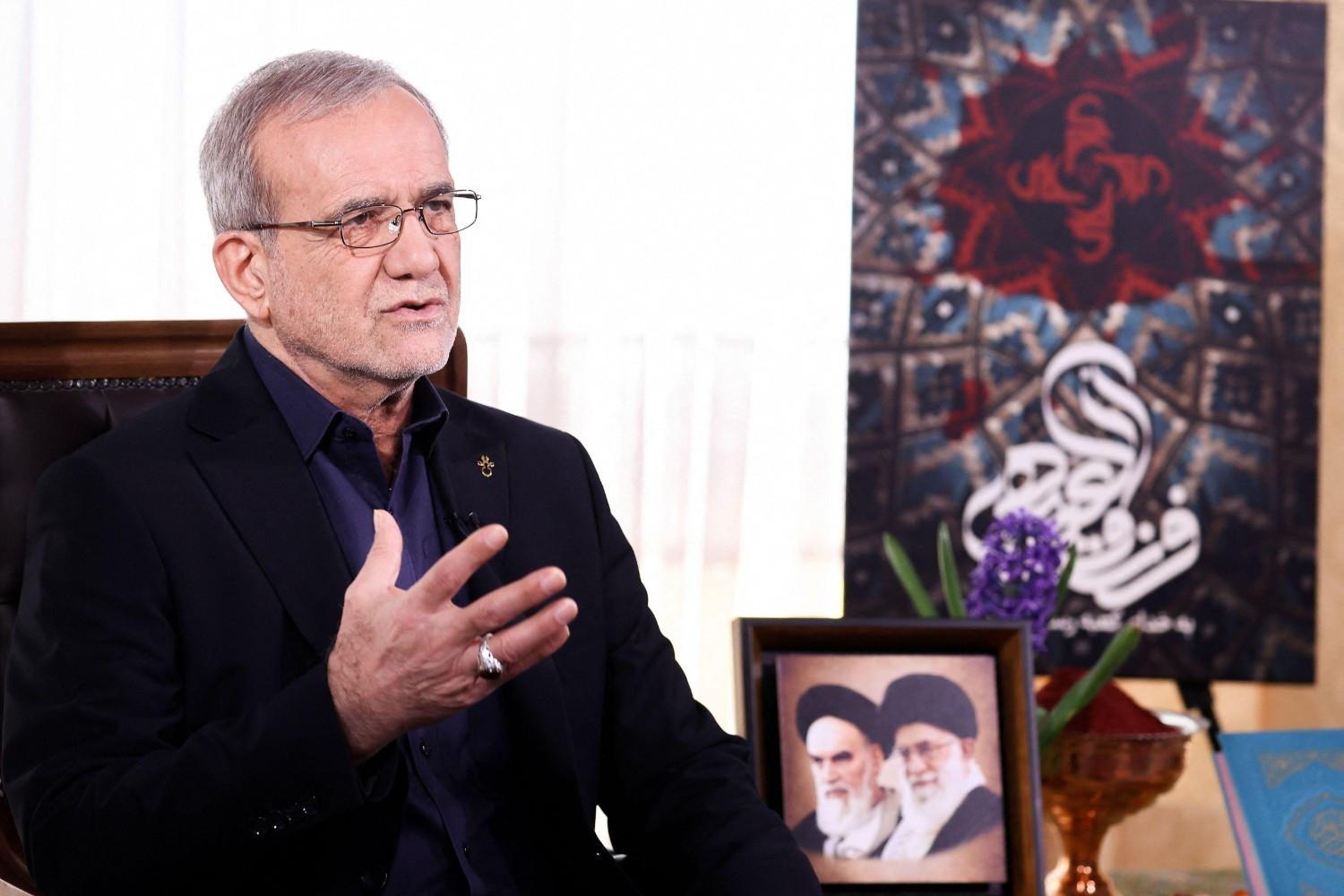
Iranian President Masoud Pezeshkian on Aug. 19 paid a visit to Armenia for talks on a planned corridor linking Azerbaijan with its exclave near the border with Iran, part of a peace deal signed at the White House.
Armenian Prime Minister Nikol Pashinyan hosted Pezeshkian in Yerevan as part of the Iranian president’s first official visit to the South Caucaus country.
The talks lasted about one and a half hours, 20 minutes of which were in a personal format.
The 10 cooperation documents in several fields were signed during a ceremony, as Iran and Armenia advanced a Persian Gulf–Black Sea transit project, with plans for new border infrastructure, freight rate adjustments and a rail link via Nakhichevan to Yerevan, according to Iranian minister Farzaneh Sadegh.
The agreement is expected to be finalized in the coming months.
The visit came as Tehran voiced concern over a U.S. backed route.
"The [possible] presence of American companies in the region is worrying," Pezeshkian said before departing on the pre-planned trip that also includes a visit to Belarus.
"We will discuss it [with Armenian officials] and express our concerns," he added, according to footage broadcast on state television.
The land corridor, dubbed the "Trump Route for International Peace and Prosperity" (TRIPP), is part of a deal signed earlier this month in Washington between Armenia and Azerbaijan.
Under the agreement, the United States will hold development rights for the proposed route, which would connect Azerbaijan to its Nakhchivan exclave, passing near the Iranian border.
Iran has long opposed the planned transit route, also known as the Zangezur corridor, fearing it would cut the country off from Armenia and the rest of the Caucasus while bringing potentially hostile foreign forces close to its borders.
Since the deal was signed, Iranian officials have stepped up warnings to Armenia, saying the project could be part of a U.S. ploy "to pursue hegemonic goals in the Caucasus region."
On Aug. 18, Iranian Foreign Minister Abbas Araghchi described it as a "sensitive" issue, saying Tehran's main concern is that it could "lead to geopolitical changes in the region."
"They [Armenian officials] have assured us that no American forces ... or American security companies will be present in Armenia under the pretext of this route," he told the official IRNA news agency.
Earlier this month, a senior adviser to Iran's supreme leader said Tehran would not allow the creation of the planned corridor, warning that the area would become "a graveyard for Trump's mercenaries."